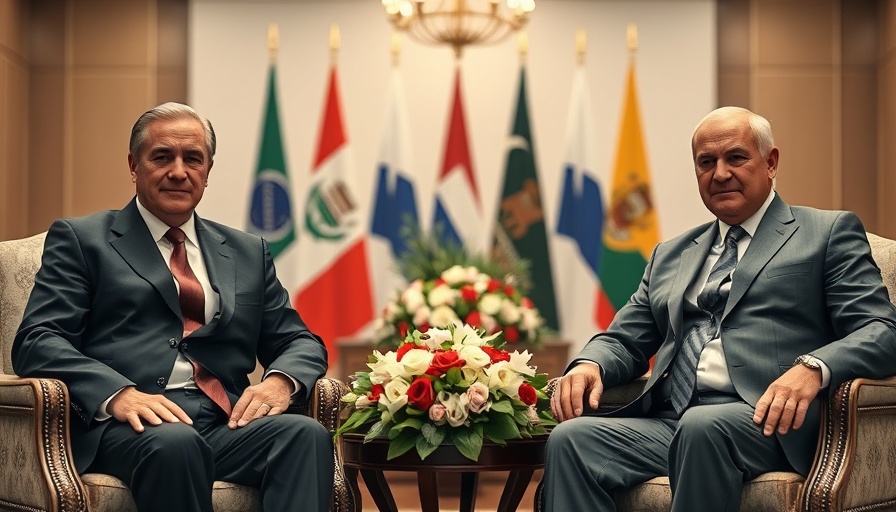
Understanding Zelensky's Clash with Trump: A Turning Point in Diplomacy
In a high-stakes environment characterized by conflict and shifting allegiances, Ukrainian President Volodymyr Zelensky's recent confrontation with former President Donald Trump elucidates the complex dynamics at play in the ongoing Ukrainian-Russian crisis. This turbulent exchange raises questions regarding Zelensky's leadership strategies and sparks debate about whether he should be perceived as a stabilizing force or a barrier to peace.
Zelensky's Stance: Seeking Security Over Agreement
Zelensky has consistently maintained that Ukraine requires significant security guarantees from its allies to negotiate peace effectively with Russia. His recent statements underlined a critical point: without a strong assurance of support, any peace agreement risks being violated, leaving Ukraine vulnerable. This perspective, emphasized in meetings with European leaders, aligns with his argument that real peace necessitates not just dialogue but also robust international backing.
Trump's Critique: Is Zelensky an Impediment to Peace?
During a tense Oval Office meeting, Trump accused Zelensky of disrespecting the U.S. and failing to show adequate gratitude for American support. Trump's claim that Zelensky's actions contribute to prolonging the conflict suggests a growing frustration among U.S. politicians regarding the effectiveness of Ukraine's approach to peace negotiations. If Zelensky continues to resist compromise, he risks alienating essential allies and jeopardizing future aid.
Reactions Across the Globe: What Does This Mean for Ukraine?
Acknowledging the stakes involved, European leaders have rallied to Zelensky's defense, reaffirming their commitment to Ukraine’s sovereignty. However, this incident illuminates a rift within Western support structures. Key leaders are demanding more decisive action, urging Zelensky to adapt his negotiating strategies. The call for unity resonates aggressively as nations grapple with the implications of stalled negotiations and the potential discrediting of Zelensky’s leadership.
The Future of Ukrainian Diplomacy: Negotiation or Continued Conflict?
As discussions of a peace deal continue, the credibility of Zelensky's position is at risk of being undermined, not just by domestic pressures but also by foreign perceptions. With Russia's assertion that Ukraine's leadership is unwilling to compromise, the onus now lies with Zelensky to reshape his narrative. Fostering a sense of urgency and willingness to negotiate may differentiate a path to peace from a trajectory of protracted conflict.
It is vital for those observing these developments—from political analysts to the average citizen—to understand that the future of Ukraine hangs in a precarious balance. The stakes are high, and how leaders navigate these turbulent waters will shape not just Ukrainian history but the geopolitical landscape of Europe as a whole.
 Add Row
Add Row  Add
Add 




 Add Row
Add Row  Add
Add 



Write A Comment